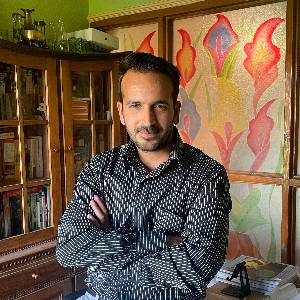As nationalism grew in force and fervour throughout modern Europe, so did the sentiment of anti-semitism across its various nations. One of the main strands of this sentiment was the suspicion of outwardly directed loyalties of the Jewish populations. Jewish citizens of these countries were suspected of having ‘dual loyalties’ — one towards the countries where they lived, and the other (and more eternal) towards the cause of Israel or the international Jewry in general. Which one of these two loyalties seemed predominant, depended upon the contemporary political context, the intensity of nationalistic fervour, and of course the opulence and influence of these minority Jewish populations.
A perpetual sense of conspiracy kept colouring the outlook of the majority population towards the Jews. Unfounded claims of cunningly involving their home countries in wars to benefit a larger and inexplicable Jewish cause; cornering and leaching off of the wealth of the society; or accusations of high treason during war, were some manifestations of this supposed Jewish dual loyalty. As the voices of nationalism became louder, so did the anti-semitic feelings across Europe. Finally, when the pitch reached the levels of Fascism in Germany, the anti-semitism crystallised into isolation, brazen violence and a full-blown genocide of the Jews.
Apart from Jews, the suspicions of dual loyalty of Catholic Christians has also been a consistent and contentious feature of politics in Protestant nations. Many prominent English and Scottish Catholics were executed during the English reformation, driven primarily by a sense of mistrust for being more loyal to the Pope. Even John F. Kennedy, one of the most popular presidents of the United States, had to face attacks from his critics for being a Roman Catholic, and thus having divided loyalties.
As societies have invested heavily into their respective geographical and political realms in terms of their economic, cultural and emotional energies, the anxieties of loyalty towards these realms and their representative symbols, have also grown as a parallel force.
Today, such anxieties are also playing a part in shaping the collective Indian psyche as the country’s nationalistic fervour gets increasingly charged up. One of the most important strands at the heart of India’s anti-Muslim sentiment is their supposedly greater loyalties towards the larger Islamic brotherhood or the Ummah. Over the last few years, this sentiment has surfaced in a number of forms in the country, its main preoccupation being in asking whether a citizen is a Muslim or an Indian in greater measure. In fact, a classic manifestation of this anxiety lies in the discourse about whether Muslims should be comfortable in uttering nationalistic slogans like Vande Mataram, or whether it would be tantamount to associating divine attributes to a nation, in addition to Allah —something that most Islamic clerics have time and again denounced. Airing the same sentiment, Indian social media is replete with posts and comments derisively urging dissident Muslim citizens to migrate to Pakistan — the nearby Muslim nation that has a history of acrimony with India.
To add an added dimension to these anxieties, it would be worthwhile to gain a grasp of the moorings of Hindutva— an ideology that is often held responsible for casting Muslims out of the Indian nationalist construct. V.D. Savarkar the founder of this ideology, in his book ‘Hindutva: Who is a Hindu?’ calls India a ‘punyabhumi’ of the Hindus. This refers to the fact that Hindu religious sentiments are completely centred around India, the country being the place of origin of their religion. It was in India itself that the Hindu gods were born, went into protracted exiles, and embarked upon heroic journeys to vanquish the demons. The epic wars between the good and the evil also took place within the confines of India itself. The locus of Hindu imagination of divinity, shaped and reinforced by its mythology, is thus centred around India alone.
However, the same cannot be said of communities like Muslims and Christians that trace their origins to far off lands and continue to have their holy sites and relics there. Their religious loyalties, which form the essence of a people’s sentimentality towards a land, may therefore not be centred around India, and are outwardly directed to their lands of origin.
From our past lessons of this political phenomenon, it is quite clear that in an increasingly inward looking society, the question of dual loyalties is expected to get more pronounced and a common desire for the ouster of seemingly disloyal groups could emerge. The rise of intense nationalism, far-right politics and cultural chauvinism, can culminate in a paroxysm of violent movements in an increasingly complex global society. An antidote towards such inward looking tendencies is a greater emphasis on the values of democracy, globalisation and unconditional humanism. A shift of focus towards global issues such as food security, poverty, energy crisis, nuclear arms and climate change, has the potential of uniting and channelising political energies towards constructive, global ends.


